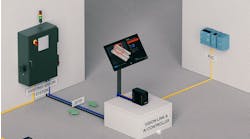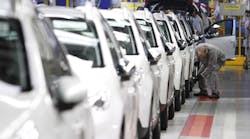Among passenger vehicle registrations, diesels currently account for over 7 million vehicles while hybrids account for 2.8 million vehicles in the U.S., according to a new report released last week by the Diesel Technology Forum.
Diesel registrations accounted for 2.8% of all passenger vehicles – cars, SUVs, pickup trucks and vans. However, diesels accounted for 10.6% of all pickup truck registrations.
“Diesel cars and SUVs are emerging in the U.S. market,” said Allen Schaeffer, executive director of the Diesel Technology Forum. “While diesels account for about 50% of all auto sales in Europe, diesels are a more modest 3% in the U.S.
“But clean diesel vehicles are poised to take off, as evidenced by the number of clean diesels being introduced in the U.S. market and there will an estimated 60 diesels vehicles available by 2017. As a result we could see the diesel market in the U.S. reach 10% by 2020 as Americans learn more about the proven real world fuel efficiency benefits and long term value of the new clean diesel technology.”
In 2013, diesel registrations increased by 410,040 nationally and hybrids increased by 531,385. The analysis also showed that while overall diesel sales were up 30% in the 2010-2013 period, hybrid sales increased by 64.5%.
“Consumers have an ever-growing number of choices for more fuel-efficient vehicles and this analysis shows that clean diesels are gaining in popularity all across the nation,” said Schaeffer. “Diesel car registrations are up 30% since 2010 while the overall market only increased 3.6%."
One reason for the increase, Schaeffer says is that diesels are about 30% more fuel efficient than gasoline vehicles and do not require compromises in vehicle performance, driving patterns or vehicle utility.
Schaeffer expects that over the next 18 months, the number of clean diesel choices to grow and encompass more vehicle classes and price ranges which will make diesels increasingly accessible to more consumers. “Already we know of 16 announced new clean diesel options that are coming to the U.S. later this year through 2017,” he said.
“Clean diesels also deliver a competitive or superior total-cost-of-ownership compared to other fuel efficient technologies. The increasing number of diesel offerings from manufacturers reflects their confidence in the technology and its importance as they select fuel- efficient strategies to meet the 2025 higher fuel economy requirements,” Schaeffer said.











